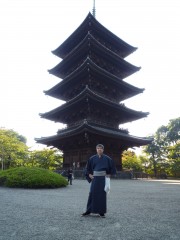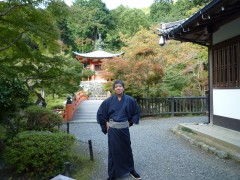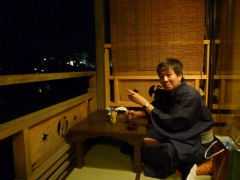26 November 2012
Film"Midnight Cowboy" Hard place for gays
1969 film that a young Texan boy travelled to New York hoping that he would make a fortune but just got troubles ending up being a male whore in cowboy outfit selling sex to men on 42nd street.
I learnt about this film by reading a magazine article published in the same year. That was Japanese magazine. It says "The film is about gay issue in America. That describes how hard for gays living in America. In Japan gays are considered abnormal but not outlawed and in showbiz industry gays can take advantage of what they are. In most states of America gay sex is outlawed. For politicians exposing himself as being gay means end of his political career." (November 18, 1969, PREIBOUI (Playboy) published by Shueisha) That was Japanese perspective of the film at that time.
Sounds odd. Now as we see, America is much more open society to gays than Japan. There are openly gay congressmen and a senator. In some states gay marriage is legalized. But just a generation plus ten years ago, America was a hell for gays. The film clearly described how homophobiac American society had been.
Maybe such oppression turned driving force for liberation along with other civil rights movement like Blacks and women.
The story of the film was very boring to me but I understand significance of the message delivered in the film. Surprisingly the film was released as X-rated at that time. It can never be classified as X-rated by today's standard. Maybe because it was a time even a Color TV with remote was considered most sophisticated product as depicted in the film.
Things have changed drastically over the decades.
22:43 Posted in Film, Society | Permalink | Comments (0) | Tags: gay, homosexuality, cowboy
25 October 2012
Visited Miyako wearing Kimono
Last weekend I went to Kyoto city which was called Miyako in famous Hollywood Geisha film "Memoirs of a Geisha."
I visited there a few times in the past. But this time was kind of new experience because I wore kimono all the time during my trip.
Do you know what kimono literaly means in Japanese? It means "thing to wear." Yes, that simply means "cloth." In the old days everyone wore it in everyday life. Now people wear it occasionally only for special events such as New Year's day, coming of age or wedding ceremony. Most of us do not wear it casually. Even in Kyoto, you could rarely see people in kimono.
That should be considered very dissapointing, isn't it. That is why I decided to wear in Kyoto. Not just for special event. I did it all the time during the trip including the time I am staying at hotel and using transportation such as bus and subway. I impressed not only foreign tourists but Japanese there.
In Kyoto I visited the Geisha towns, Budhist temples and shrines. I could enjoy viewing those places in a very different way because of kimono. Kimono restrains you and makes you walk difficult. Not just kimono, I wore Japanese tradtional socks, called Tabi and sandals, called Zori. Those things disturbed me as well.
But that is why I had different experience from the past trips. I experienced how people viewed the places when the places was first established. I could share experience with people in the old eras.
Japanese lifestyle has dratiscally changed since Japan opened door to the West. We seemed lost our identity by that. Wearing kimono can revive our lost identity and traditional feeling.
See the photo of the below. That is traditional way of enjoying meals and sake. I did it on balcony of riverside restaurant. I enjoyed nice view as well as tasty sake and delicous Kyoto cuisine.
Kimono and Kyoto are what we should be proud of.
07 October 2012
Film"The Help" and "Precious" Elegant & Rich Whites and Vulgar & Poor Blacks
Two films are stories about Afro-Americans in the U.S. Both of them described hard situations that Black people had experienced in the past and maybe even now.
"The Help" was a story of Afro-American maids working for white families in Mississippi in 1960's when segregation was very common. Afro-American maids were not allowed to share bathroom with white family members. They had to always put up with white people's arrogance. A young white writer decided to write about their experience and publish that by interviewing them.
"Precious" was about a girl of the same name living in Harlem, New York, 1980's. She got two babies with her father. She was raped since she was a child. Her mother abused her because of pregnancy. Her mother and she lived on welfare. She had to stop attending middle school for pregnancy. So she had to attend special school for dropped outs.
Portrayals of Black people in the both films are kind of, from white perspective although Afro-American characters played important roles. They spoke grammatically incorrect English like "You is smart." They looked uneducated, vulgar and violent, wheras white or lighter skin characters looked elegant, educated and kind. That reflects on reality? Maybe or maybe not.
For white viewers such kind of films satisfy their supremacy and ease frustration caused by forcible integration.
Has America changed since Civil Rights Act?
Mr. Obama is the president of the U.S. He is half-white and not descendant of slaves. If he was a pure Afro-American of slave descendant, he would have never been elected. He wasn't popular in the Southern States even among Democrats. Because he was elected, since his inauguration, number of Racist activist group has drastically increased.
Most recent survey for income gap among racial groups found Black and white gap recorded biggest since 1984 when the survey was first conducted. It was due to recession but why the burden biased to Afro-Americans? Racism? Poverty and lack of education caused by racial discrimination.
I don't like this part of America but this is reality of America.
22:54 Posted in Film, Media, Society | Permalink | Comments (0) | Tags: racism, afro-american, history, poverty
12 August 2012
Translated Novel: "Let's Fundoshi" Chapter 1
This is translation of Japanese novel on my Japanese blog site. The original title of the novel was "Nihon Danji wo Yamerarenai (Can't stop being Japanese traditionl man).
A Candadin man experiences FUNDOSHI, Japanese traditional male underwear, swimming suit and custume for festival.
Jacques Charbonneau was a Canadian man born and raised in Montreal, Quebec, Canada. He belogns to majority of that reigion, so called "French Canadian."
From his childhood, he spoke French at home. His parents and relatives were all French Canadians. But he spoke English at school. Half of his friends were Englisha dn the other half were French.
Therefore his native languages were both Englisha and French. He was a billingual but since he entered Tronto University in State of Ontario, one more language was added and then he became tringual. The third language was Japanese.
Why he studied Japanese was he met a Japanese girl named Yuriko Watanabe, whom he fell in love with. She could speak English but he wanted to speak to her directly in her mother's language. The he chose Japanese as his major. With help of Yuriko, he mastered Japanese. His Japanese was excellent so that even Yuriko said that he could speak like Japanese national. He graduated from Japanese department of the university with top rank. After graduation, he started translation and interpretation among English, French, and Japanese. Afterwards, Yuriko became an important job partner and finally a partner in his private life.
When they got married, Yuriko's father, Taizo Watanabe flew to Canada and approved their marriage. The wedding was held in a small church with attendance of small number of people. Taizo was her only family member since her mother was already dead and she was the only child for Taizo.
Jacques wanted to visit Yuriko's hometown but he had been busy for his work and he was too afraid of flying. He could not have chance to visit Japan. He always regretted that he never visited his wife's hometown. He thought he should overcome flying phobia and visit Japan. He could speak Japanese fluently but he could only use it to his wife and Japanese living in Canada.
Yuriko never recommended Jacques to visit Japan. Her hometown was one of most conservative place so localies never welcome a foreign white man like Jaques. She heard that localies did not think her marriage to a foreigner was a good thing. So They thought they did not have to regret it.
But in the third year of their marriage, the couple had to visit Japan. Taizo got sick and was hospitalized. He got out of the hospital but had to stop working and stay home for rehabilitation. A woman who lived nearby sometimes visited him to see how he was but he seemed so depressed that Yuriko should look after him to help him recover his condition.
Yuriko was so worried that the two decided to go there. Translation work could be done even after they moved to Japan as long as they could maintain internet access. They checked the IT environment there and found out there was no problem doing it.
Jacques stood for more than 10 hour flight and finally arrived in Kansai International Airport in Japan. The two travelled to her hometown, Awai Town. The town was on the coastal line of the Sea of Japan in Chugoku region, it was a fishery town. From her home, spectacular ocean view was seen from a window. Taizo gladly welcomed Yuriko and Jaques after a long absence. Taizo was a local fisherman.
They used the room Yuriko had used from her childhood. They started getting along as family. Jacques found Taizo very weak comparing what he saw at the wedding. He got thinner and looked pale. He was as tall as Yuriko but looked smaller than before. He wished he would come back his fishery work afte he regained health. He thought about how to deal with him. Jaques called hime "Otosan (Father)" like Yuriko did.
A week has passed. Things happened as expected. Localies called him "Gaijin (Foreigner)." They spoke about him behind him but they never greeted. They treated hime like outsider. He tried to understand what they said but the language they used was blended with strong accent and dialect. With Yuriko's help. Jacques gradually understood what they said.
Even after they understood the language, living in conservative and closed community was hard for him. Furthermore he was a tall white Canadian. Some stayed away just by looking at him. He was appearently discriminated.
One more troubling thing happened, that was because of season he visited.
Hot and humid climate. It was far different from where he grew up. Even Montreal could get as hot as 30 degree but such hotness was what he never experienced before. It was because of Japan's humidity.
He got sweat very soon. Japanese got used to it but Jacques never resist such wet feeling. He was adapted to the coldness but not such humidity sweating so much.
His body finally responded to it. He got eczema. It was itchy and reditsh. He could not stop scratching. What should he do? He came over to help his father in law recover but he, himself became sick.
Yuriko advised him to see a doctor. The doctor diagnosed his symptom. The result was "latex allergy" in other way, it is called "Rubber allergy."
Jacques asked a doctor "Why did I get such allergy?"
"It is because of underwear you are wearing. The rubber band got soaked and melted down to your skin. Japan's humid summer melted rubber and got into your body that caused allergy symptom. Unless you stop wearing it, it can never be cured."
"You tell me never to wear underwear? Oh, no!" Jacques was shocked to hear that. It was never comfortable living without undewear. Especially for men it was necessary to tighten private zone to stay normal.
"Since you can't wear conventional underwear, we advise patients to wear something else instead" the doctor said showing him white long cloth.
"THIS IS FUNDOSHI".
Continued to Chapter 2.
15:36 Posted in Canada, Culture, My novel, Society | Permalink | Comments (0) | Tags: japan, literature









